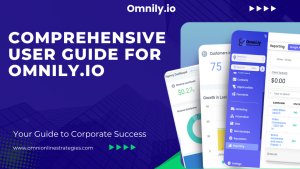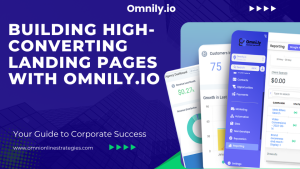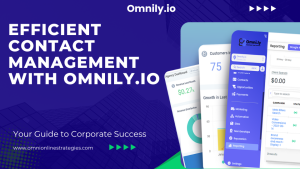

Your go-to guide for mastering Omnily.io.

Create landing pages that drive conversions with Omnily.io.

Manage your business contacts effectively using Omnily.io.

Create landing pages that drive conversions with Omnily.io.

Omni Online Strategies A full service marketing agency with a unique strategic understanding of marketing and sales processes.


Copyright © 2024 Omni Online Strategies , Inc.
Legal Stuff | Privacy Policy | Security | Website Accessibility | Manage Cookies